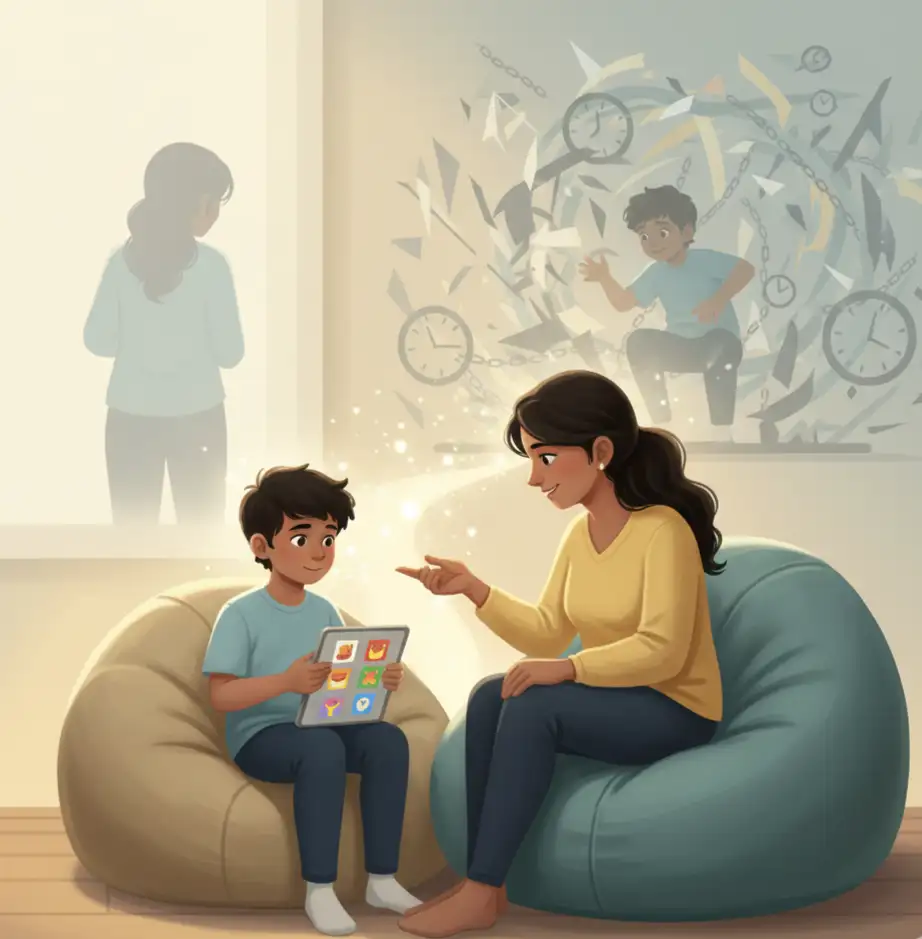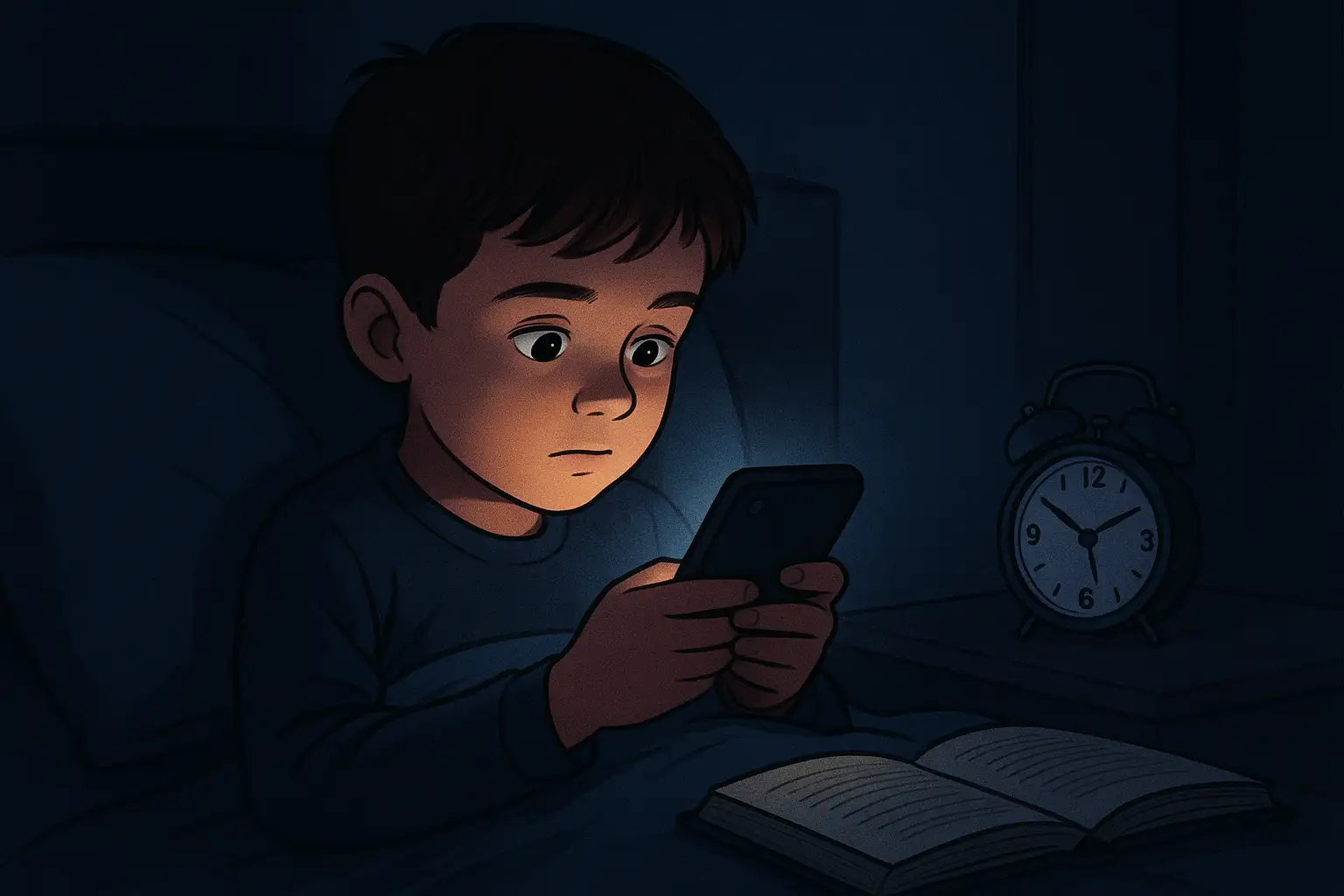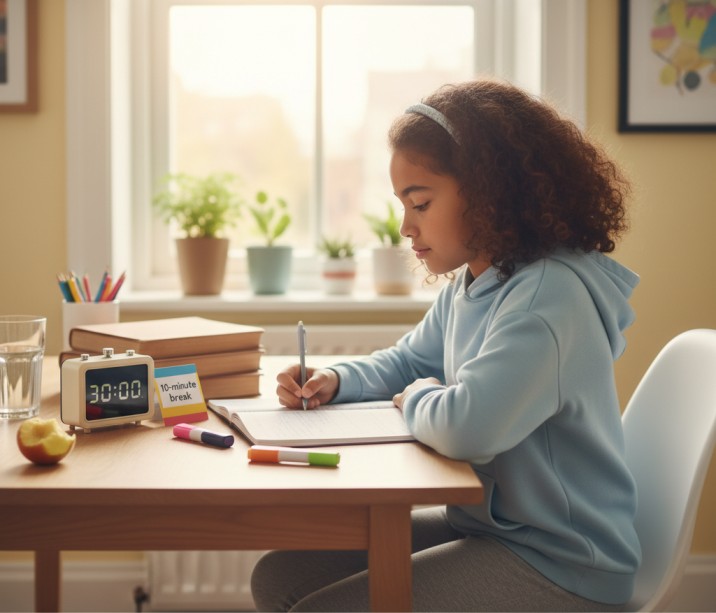ADHD or Just High Energy? Simple Strategies for Structure, Routine, and Support
Children are naturally curious and lively. They run, climb, talk nonstop, and push boundaries because that’s how they learn.
But every now and then, certain behaviours start spilling into schoolwork, friendships, or everyday routines, and that’s when a closer look helps.
ADHD vs High Energy
So… what’s normal energy and what might point to ADHD?
Think of it this way: high energy usually comes in waves. Your child might be bouncing around, but once they’re engaged or guided, they settle.
Typical high-energy behavior often includes:
- Getting restless during long or boring tasks
- Acting impulsively once in a while
- Struggling to stay still in strict, formal environments
- Lots of running and climbing, but eventually calming down
On the other hand, ADHD tends to show up as patterns that stick around across different situations.
Possible ADHD signs may look like:
- Difficulty following instructions regularly
- Trouble focusing even on short, fun activities
- Misplacing things often
- Interrupting conversations or activities
- Challenges that affect schoolwork or social situations
- Behaviours noticeable both at home and school
If these patterns are happening consistently, it’s worth paying attention, not with worry, but with curiosity and care.
Why Structure Helps, Whether It’s ADHD Or Not
There’s something almost magical about routine for children. I see it all the time. For kids with attention challenges, structure isn’t just helpful, it’s grounding.
Their brains thrive when they know what to expect. Predictable routines reduce overwhelm, support self-control, and make daily life smoother for everyone.
Strategies That Help Your Kids
These are small, practical ideas I often recommend and they can make a noticeable difference.
1. Keep routines predictable
Steady wake-up times, homework hours, play windows, and bedtime rituals help kids feel secure and in control.
2. Use visual schedules
Checklists, picture cards, or simple charts give kids a clear roadmap. It reduces arguments and increases independence.
3. Break tasks into tiny steps
Instead of “Clean your room,” try:
- Put toys in the basket
- Fold the clothes
- Line the books on the shelf
Small wins build momentum.
4. Add short movement breaks
A few minutes of stretching, jumping, or walking every 20–30 minutes resets attention beautifully.
5. Limit distractions
A quiet corner with a single desk, soft lighting, and no screens can do wonders during homework time.
6. Celebrate the effort
Kids bloom with encouragement.
A simple, “I noticed you tried so hard today,” can boost confidence more than we imagine.
When Should You Talk To A Specialist?
If you’ve been seeing these behaviours for six months or more, and they’re showing up across home and school, and they’re impacting learning or friendships, it may be time to get a gentle assessment.
And remember, early guidance isn’t about labels or medication. Often, it’s simply about giving families the right tools and strategies.
Reminder For Every Parent
Every child’s brain has its own rhythm. Some kids are movers, some are dreamers, some are deep thinkers. Our job is to understand their world and support them with patience and empathy.
If some of these behaviours sound familiar, or if you’ve been wondering whether your child needs support, don’t carry that uncertainty alone.
Have you noticed any of these patterns?
You can reach out to Dr. Aman, one of the ADHD Doctor in Dubai, for consultation and clarity.







